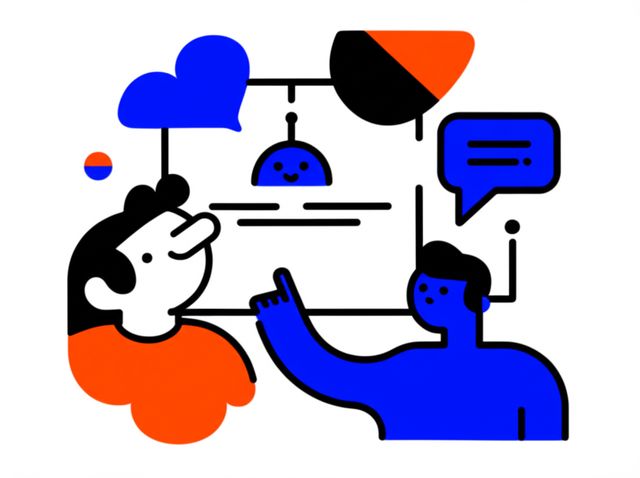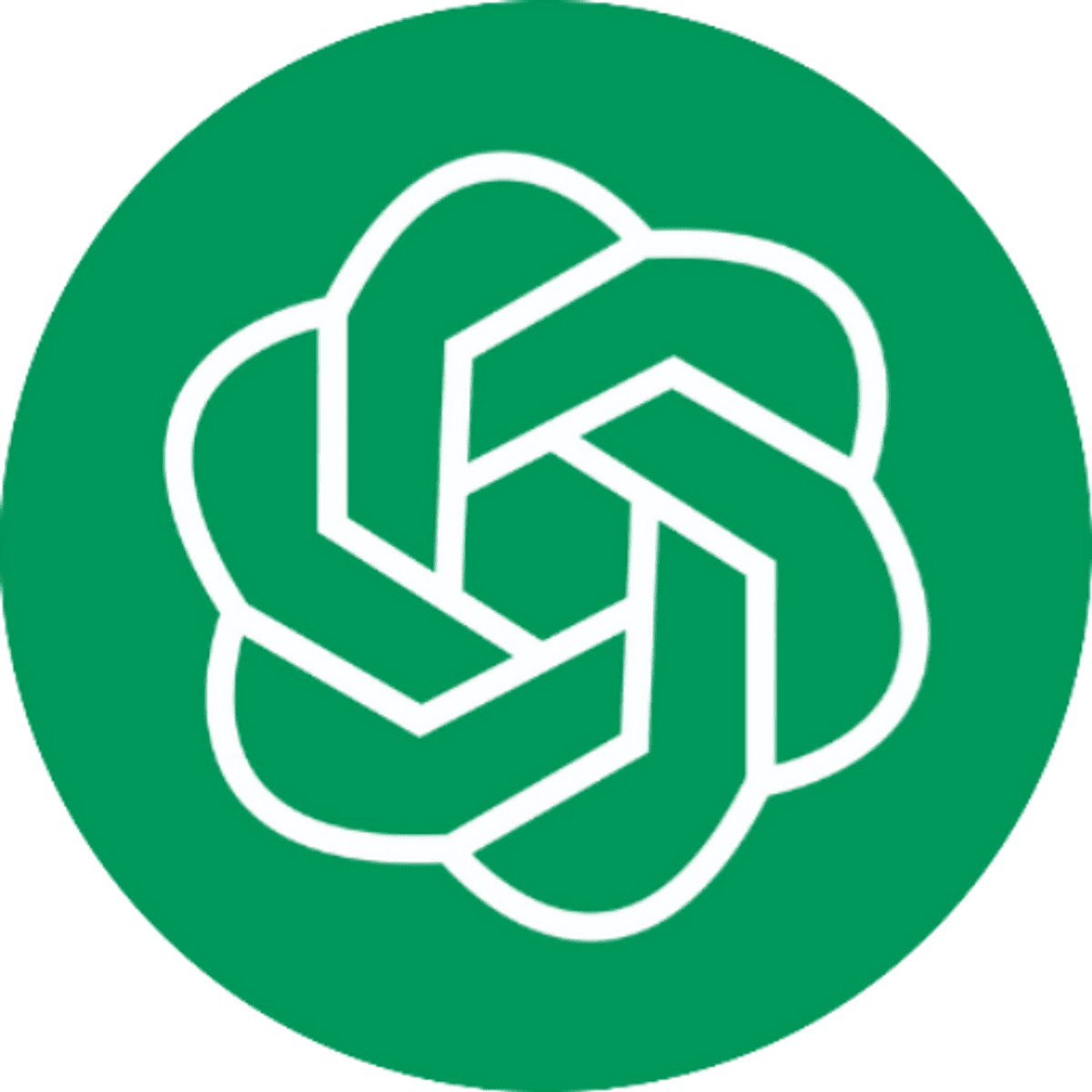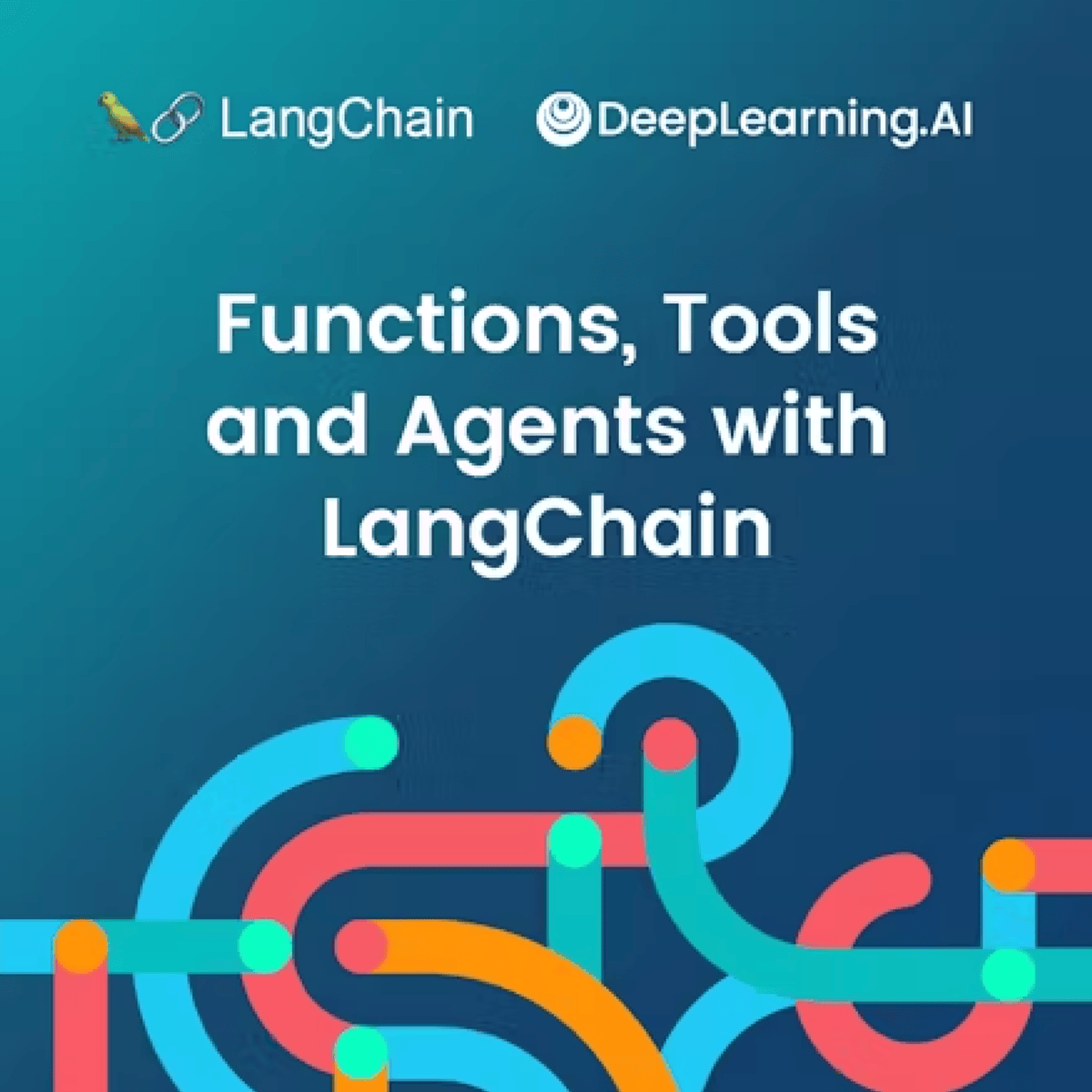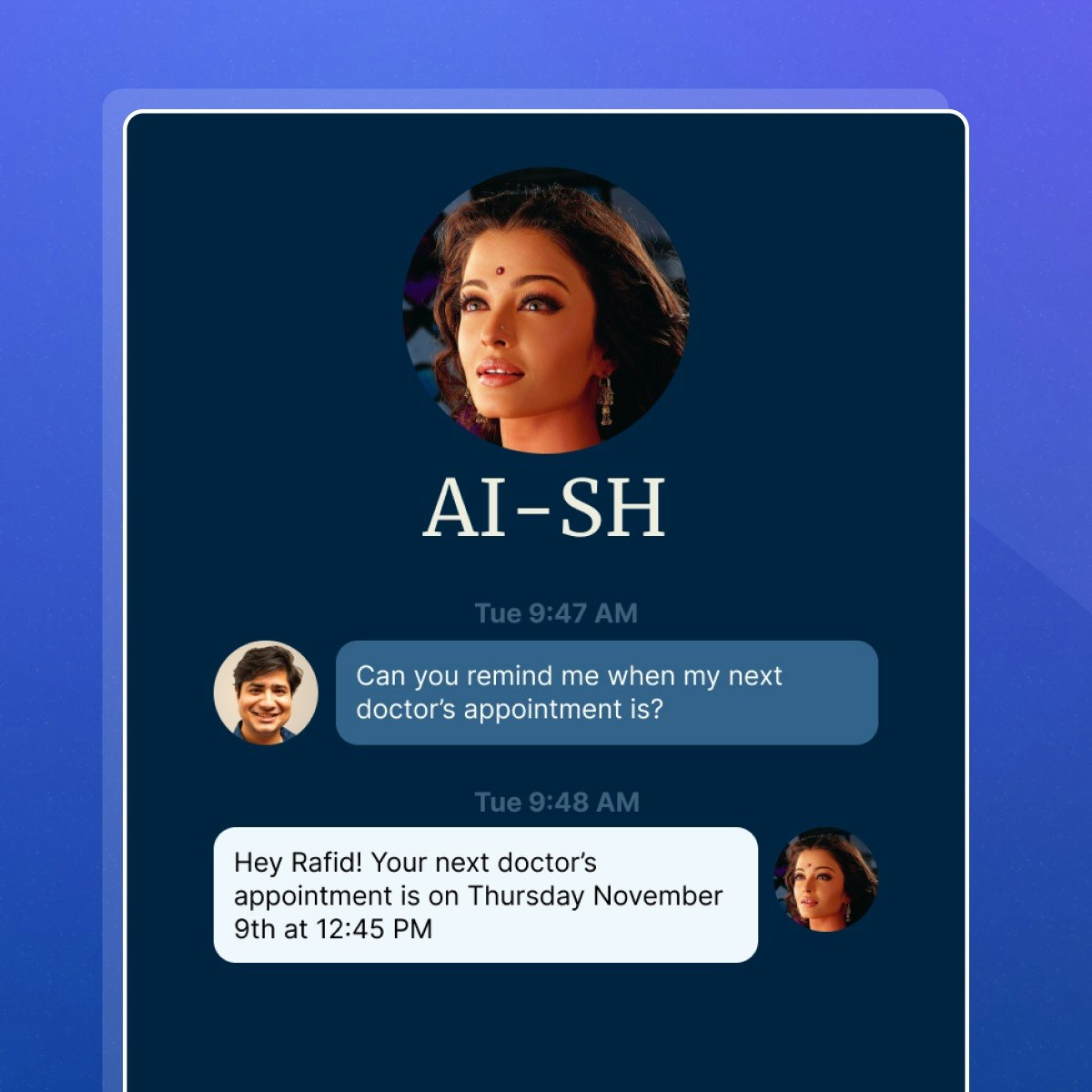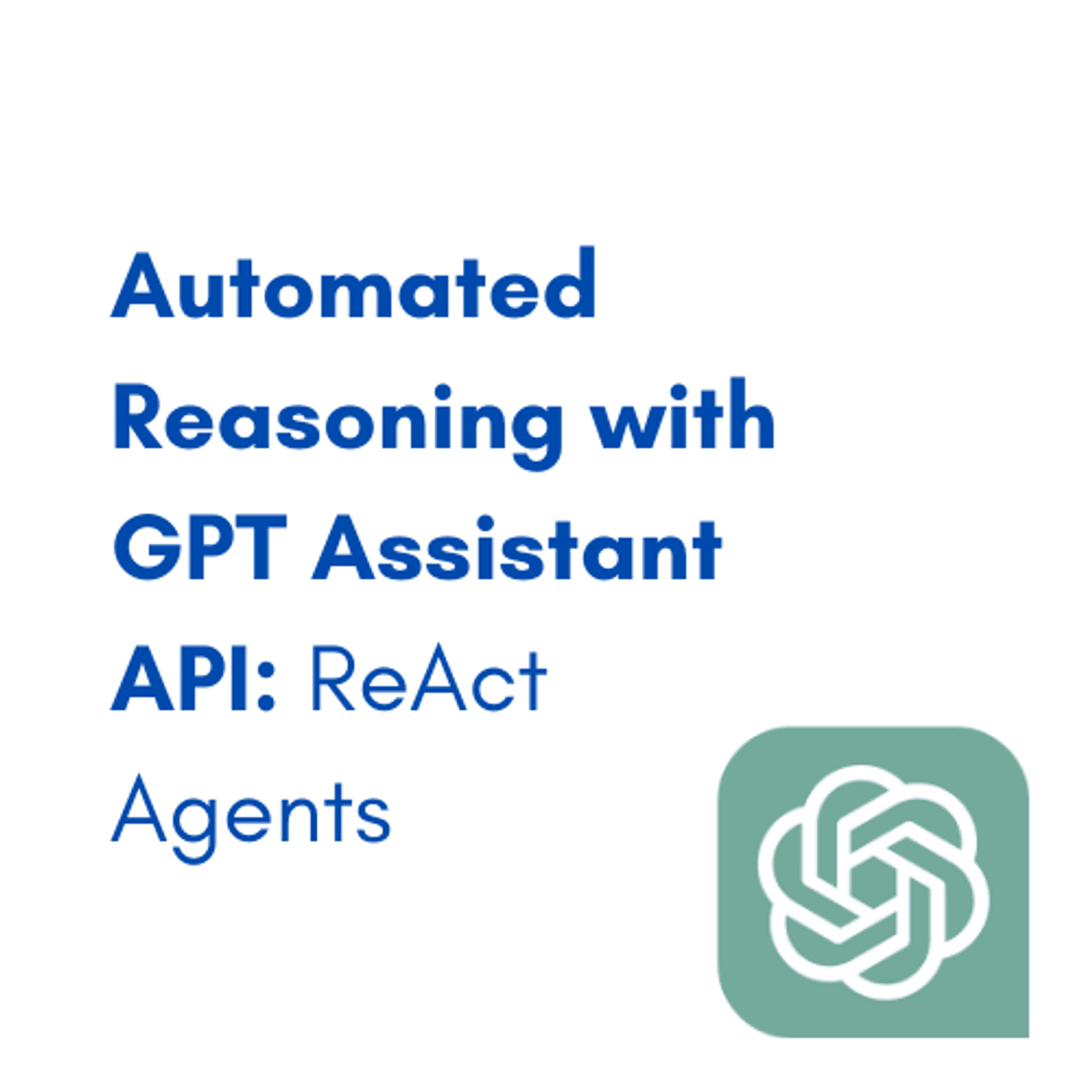Chatbot Developer
Chatbot Developer: Crafting Conversations with Code
A Chatbot Developer is a specialized software developer focused on designing, building, testing, and maintaining chatbots and conversational AI systems. These professionals create the automated programs that interact with users through text or voice, simulating human conversation to provide information, complete tasks, or offer support. They bridge the gap between human language and computer understanding, enabling seamless interactions across websites, messaging apps, and virtual assistants.
Working as a Chatbot Developer can be incredibly engaging. You get to blend creativity in designing conversational flows with the technical challenge of implementing complex logic and leveraging cutting-edge AI. Seeing your creation effectively help users or streamline business processes offers immense satisfaction. Furthermore, the field is constantly evolving with advancements in Natural Language Processing (NLP) and AI, ensuring continuous learning and opportunities to work with exciting new technologies.
Introduction to Chatbot Development
What is a Chatbot Developer?
At its core, a Chatbot Developer creates the software that powers conversational interfaces. Think of the automated assistants you encounter on websites for customer support, the bots within messaging platforms, or even voice-activated systems. These developers write the code, configure the platforms, and train the AI models that allow these bots to understand user input (text or speech) and respond appropriately.
They are part software engineer, part linguist, and part user experience designer. Their work involves not just programming but also understanding the nuances of human language, anticipating user needs, and crafting interactions that feel natural and helpful. The goal is to build bots that are not just functional but also efficient and engaging for the end-user.
This role sits at the intersection of software development, data science, and user experience design. It requires a unique blend of technical prowess and an understanding of human communication patterns. As AI continues to advance, the role becomes increasingly sophisticated, involving more complex AI models and integrations.
The Purpose of the Role
The primary objective of a Chatbot Developer is to build conversational systems that solve specific problems or fulfill particular needs. This could range from automating repetitive customer service inquiries and qualifying sales leads to guiding users through complex processes or providing personalized information. They aim to enhance efficiency, improve user experience, and sometimes even create entirely new ways for businesses and individuals to interact with technology.
Developers work to ensure the chatbot accurately understands user intent, retrieves the correct information or performs the right action, and communicates back clearly and concisely. They are responsible for the end-to-end lifecycle of the chatbot, from initial conception and design through development, testing, deployment, and ongoing maintenance and improvement based on user feedback and performance data.
Ultimately, a Chatbot Developer strives to create value, whether it's reducing operational costs for a business, providing instant 24/7 support to customers, or making information more accessible through a conversational interface. Their work directly impacts how users interact with brands and services in the digital space.
The Rise of Chatbots
Chatbots are no longer a novelty; they have become integral components of digital strategy across numerous industries. Initially simple, rule-based systems, chatbots have evolved significantly thanks to advancements in Artificial Intelligence (AI), particularly Natural Language Processing (NLP) and Machine Learning (ML). Modern chatbots can understand context, handle complex queries, personalize interactions, and learn from conversations.
This evolution has been driven by the demand for instant, scalable, and cost-effective customer engagement. Businesses in sectors like e-commerce, banking, healthcare, travel, and telecommunications leverage chatbots for customer support, sales assistance, appointment booking, and information dissemination. The integration of powerful AI models, including large language models (LLMs) like those powering ChatGPT, has further accelerated their capabilities and adoption.
The ongoing digital transformation and the increasing consumer expectation for immediate, personalized service suggest that the role of chatbots will only continue to grow. This creates a dynamic and expanding field for developers specializing in conversational AI.
Key Responsibilities and Skills
Day-to-Day Tasks
A Chatbot Developer's daily activities are diverse. A significant portion of their time is spent designing the chatbot's conversational flow – mapping out how the bot will respond to various user inputs and guiding the conversation towards a resolution. This involves defining intents (what the user wants to achieve) and entities (key pieces of information within the user's request).
Coding and implementation are central tasks, involving writing the logic that governs the chatbot's behavior, integrating with backend systems and APIs to fetch data or perform actions, and configuring chatbot platforms or frameworks. Developers also spend considerable time training the AI models, feeding them data to improve their understanding of language and ability to recognize user intent accurately.
Testing is crucial to ensure the chatbot functions correctly, handles errors gracefully, and provides a positive user experience. Post-deployment, developers monitor the chatbot's performance, analyze interaction logs to identify areas for improvement, and perform regular maintenance and updates to keep the bot effective and secure.
Essential Technical Skills
Strong programming skills are fundamental. Proficiency in languages commonly used in AI and web development, such as Python and JavaScript, is highly valuable. Understanding core software development principles, data structures, and algorithms is also essential.
Knowledge of Natural Language Processing (NLP) techniques and frameworks is critical. This includes familiarity with libraries like spaCy, NLTK, TensorFlow, or PyTorch, and understanding concepts like tokenization, stemming, intent recognition, and sentiment analysis. Experience with chatbot development platforms (e.g., Google Dialogflow, Rasa, Microsoft Bot Framework, AWS Lex) simplifies development and deployment.
API integration skills are necessary for connecting chatbots to external services, databases, and enterprise systems to provide dynamic responses and perform actions. Familiarity with RESTful APIs, JSON/XML data formats, and authentication methods is important. Basic knowledge of cloud platforms (AWS, Azure, Google Cloud) where chatbots are often hosted is also beneficial.
These courses provide a good starting point for building the technical foundation needed for chatbot development, covering programming, AI concepts, and specific tools.
For those looking to delve into the theoretical underpinnings, these books offer comprehensive insights into machine learning, a core component of modern AI.
Important Soft Skills
Beyond technical expertise, certain soft skills are vital for success. Strong problem-solving abilities are crucial for debugging complex issues, optimizing performance, and finding creative solutions to conversational design challenges. Chatbot development often involves tackling ambiguous requirements and unexpected user behavior.
User empathy is essential for designing chatbots that are genuinely helpful and pleasant to interact with. Developers need to put themselves in the user's shoes, anticipate their needs and frustrations, and craft conversations that are clear, concise, and respectful. Understanding the target audience and their context is key.
Effective communication skills are also important, especially when working in a team or interacting with stakeholders (like product managers, designers, or clients). Developers need to articulate technical concepts clearly, explain design choices, and collaborate effectively to build the best possible product. Adaptability and a willingness to learn are crucial in this rapidly evolving field.
Technical Tools and Frameworks
Programming Languages
Python is arguably the most dominant language in chatbot development, largely due to its extensive libraries and frameworks for AI, Machine Learning, and NLP (like NLTK, spaCy, TensorFlow, PyTorch). Its clear syntax and strong community support make it a popular choice for building the backend logic and AI components of chatbots.
JavaScript is also widely used, particularly for front-end development and integration with web applications. Frameworks like Node.js allow JavaScript to be used on the server-side, making it suitable for building full-stack chatbot applications. Many chatbot platforms also offer JavaScript SDKs.
While Python and JavaScript are the most common, other languages like Java or C# might be used depending on the specific platform or existing technology stack within an organization. However, a strong foundation in Python is often the most versatile starting point for aspiring chatbot developers.
These courses focus specifically on building chatbots using popular languages and integrating with powerful AI models.
Natural Language Processing (NLP) Libraries
NLP libraries provide the tools to process and understand human language. Libraries like spaCy and NLTK (Natural Language Toolkit) for Python offer functionalities for tasks like sentence segmentation, word tokenization, part-of-speech tagging, named entity recognition, and dependency parsing.
For more advanced capabilities, deep learning frameworks like TensorFlow and PyTorch are used to build and train custom machine learning models for intent classification, entity extraction, and sequence-to-sequence tasks common in chatbots. These allow for more sophisticated language understanding.
Frameworks like LangChain have emerged to simplify the development of applications powered by large language models (LLMs), providing modules for managing prompts, memory, data connections, and agentic behavior. These tools are becoming increasingly important for building next-generation chatbots.
Understanding NLP is fundamental. This course provides a solid introduction to the field.
These courses dive into using specific NLP tools and frameworks relevant to chatbot development.
Chatbot Platforms and Deployment
Several platforms streamline chatbot development. Google's Dialogflow offers a comprehensive environment for building conversational interfaces across multiple platforms, leveraging Google's NLP capabilities. Rasa is an open-source framework that provides more control and customization for building sophisticated AI assistants.
Cloud providers offer dedicated services, such as AWS Lex, Microsoft Azure Bot Service (often used with Power Virtual Agents), and IBM Watson Assistant. These platforms provide tools for dialogue management, NLP, integration, and deployment, often integrating seamlessly with other cloud services.
Choosing a platform often depends on factors like required customization, scalability needs, existing cloud infrastructure, budget, and the technical expertise of the team. Developers often need to be familiar with one or more of these major platforms.
Explore these courses to gain hands-on experience with popular chatbot platforms and related technologies.
Formal Education Pathways
Relevant Academic Degrees
A bachelor's degree in Computer Science is a common and strong foundation for a career as a Chatbot Developer. It provides essential knowledge in programming, algorithms, data structures, software engineering principles, and often includes introductory courses in AI and machine learning.
Other relevant fields include Software Engineering, Data Science, or degrees with a strong focus on Artificial Intelligence or Machine Learning. Some developers might also come from a Linguistics background, particularly if they specialize in conversation design or the intricacies of language modeling, although a technical foundation is usually still required.
While a bachelor's degree is typical, advanced degrees (Master's or Ph.D.) in AI, NLP, or related fields can open doors to more specialized research or development roles, particularly those involving cutting-edge model development or complex AI system design. However, for many development roles, practical skills and experience are often valued as highly as formal academic credentials.
Key University Coursework
Within a relevant degree program, certain courses are particularly beneficial. Core programming courses (often in Python, Java, or C++) are fundamental. Courses covering Data Structures and Algorithms provide the building blocks for efficient software development.
Specialized courses in Artificial Intelligence, Machine Learning, and Natural Language Processing are highly relevant, offering theoretical understanding and practical techniques used in chatbot development. Software Engineering courses teach best practices for designing, developing, testing, and maintaining software systems.
Database management courses are useful for understanding how chatbots interact with data storage systems. Web development courses (both front-end and back-end) can also be advantageous, as many chatbots are deployed via web interfaces or interact with web services.
Self-Study and Certifications
Formal education provides a strong theoretical base, but the rapidly evolving field of chatbot development necessitates continuous learning. Self-study through online courses, tutorials, and documentation is essential for keeping skills current, especially regarding specific platforms, libraries, and emerging AI techniques like generative AI.
Certifications offered by cloud providers (like AWS Certified Machine Learning – Specialty, Microsoft Certified: Azure AI Engineer Associate) or specific platform vendors can demonstrate proficiency with particular tools and technologies. While not always mandatory, they can enhance a resume and validate skills to potential employers.
Building a portfolio of personal projects is perhaps the most crucial supplement to formal education or self-study. Practical experience in designing, building, and deploying chatbots showcases tangible skills far more effectively than credentials alone. Platforms like OpenCourser offer access to a vast range of courses for self-paced learning.
These courses offer certifications or cover content relevant to specific platform certifications, which can be valuable additions to your profile.
Online Learning and Skill Development
Can You Learn Chatbot Development Online?
Absolutely. The field of chatbot development is particularly well-suited to online learning. Numerous high-quality resources, from comprehensive courses on platforms aggregated by OpenCourser to specialized tutorials and documentation, cover everything from foundational programming concepts to advanced AI techniques and specific platform usage.
Online learning offers flexibility, allowing individuals to learn at their own pace and focus on areas most relevant to their goals. Whether you're a student supplementing formal education, a professional looking to pivot careers, or someone starting from scratch, online resources provide accessible pathways to acquire the necessary skills.
Transitioning into a technical field like chatbot development requires dedication and persistence. It's natural to encounter challenges, but the wealth of online communities, forums, and learning platforms provides ample support. Setting realistic goals and celebrating small milestones can keep motivation high during the learning process. Remember, many successful developers are self-taught or have significantly augmented their skills through online learning.
Building Practical Experience
Theoretical knowledge is important, but practical application is paramount in chatbot development. Merely watching video lectures or reading documentation isn't enough. Actively building projects is the most effective way to solidify understanding and develop real-world skills.
Start with small, manageable projects. Try building a simple FAQ bot, then gradually increase complexity. Integrate an external API, add basic NLP capabilities, or experiment with different conversation flows. Many online courses include hands-on labs or guided projects that provide excellent starting points.
Don't be afraid to experiment and break things. Debugging errors is a crucial part of the learning process. Contributing to open-source chatbot projects (like Rasa) or participating in online coding challenges related to AI can also provide valuable experience and exposure to different approaches.
These courses emphasize hands-on projects, allowing you to apply concepts immediately.
Creating a Strong Portfolio
A portfolio is your personal showcase, demonstrating your skills and passion to potential employers or clients. It should feature a curated selection of your best chatbot projects. For each project, provide context: what problem does it solve? What technologies did you use? What challenges did you overcome?
Include code samples (e.g., via GitHub), screenshots or videos of the chatbot in action, and perhaps a brief description of the design process. Aim for variety in your projects if possible, showcasing different skills (e.g., a bot using a specific platform, another integrating complex APIs, one focusing on sophisticated NLP).
Even simple, well-executed projects can be effective. Consider building bots that solve a personal need, contribute to a community, or demonstrate creativity. A polished portfolio is often more influential than a resume alone, especially for those entering the field or changing careers.
Consider these books for insights into conversational design and building practical applications, which can inspire portfolio projects.
Leveraging OpenCourser Resources
OpenCourser is a powerful ally in your learning journey. Its extensive catalog allows you to search for courses across various providers, covering foundational topics like Python programming and Artificial Intelligence, as well as specialized skills in NLP, specific frameworks like LangChain, or platforms like Dialogflow and AWS Lex.
You can compare course syllabi, read summarized reviews, and even find deals to make learning more affordable using the deals page. Features like saving courses to a personal list (manage your list here) help organize your learning path. The platform often suggests related books and potential career paths connected to courses, providing a holistic view.
For guidance on maximizing your online learning experience, structuring your studies, and even showcasing your new skills on platforms like LinkedIn, be sure to explore the resources available in the OpenCourser Learner's Guide. It offers practical advice tailored to self-directed learners, students, and professionals alike.
Career Progression for Chatbot Developers
Starting Your Journey
Entry-level roles often involve supporting more senior developers. Titles might include Junior Chatbot Developer, Conversational AI Developer, or sometimes roles focused on specific aspects like Chatbot QA Tester or Dialogue Annotator (labeling data for model training).
In these initial roles, you'll typically work on less complex tasks, such as implementing specific conversation flows, fixing bugs, running tests, or maintaining existing bots under supervision. It's a crucial phase for building practical experience, learning team workflows, and deepening your understanding of specific tools and platforms used by the employer.
Focus on mastering the core technical skills, understanding the business context of the chatbots you work on, and seeking mentorship from experienced colleagues. Demonstrating eagerness to learn and contributing reliably are key to progressing.
Mid-Career Advancement
With a few years of experience, developers can take on more responsibility, leading the design and development of more complex chatbots or features. They might specialize in particular areas, such as Natural Language Processing (becoming an NLP Specialist or Engineer), focusing on optimizing language models and understanding.
Other paths include specializing in specific platforms (e.g., becoming a certified Dialogflow or Rasa expert) or focusing on the broader AI ecosystem, potentially moving into roles like AI Engineer or Machine Learning Engineer, which often overlap with chatbot development but encompass a wider range of AI applications.
At this stage, developers often contribute to architectural decisions, mentor junior team members, and have more direct interaction with stakeholders to define requirements. Strong technical skills combined with good communication and project management abilities are essential for advancement.
Reaching Leadership Positions
Experienced Chatbot Developers with strong leadership potential can move into roles like Technical Lead, AI Architect, or AI Product Manager. Technical Leads guide development teams, make key architectural decisions, and ensure technical excellence. AI Architects design the overall structure of complex AI systems, including conversational AI components.
An AI Product Manager bridges the gap between technical development and business strategy. They define the vision for AI products (including chatbots), prioritize features, and work closely with development teams and stakeholders to bring products to market. This role requires a blend of technical understanding, market awareness, and strategic thinking.
These leadership roles demand not only deep technical expertise but also strong strategic vision, excellent communication and interpersonal skills, and the ability to manage teams and projects effectively. Continuous learning remains crucial, as leaders must stay abreast of the latest AI advancements and industry trends.
Industry Applications and Demand
Where Chatbot Developers Work
The demand for chatbot developers spans a wide array of industries. Customer service is a major area, with companies across retail, banking, telecommunications, and travel using chatbots to handle inquiries, provide support, and automate interactions. E-commerce platforms use bots for product recommendations, order tracking, and sales assistance.
Financial services employ chatbots for tasks like balance inquiries, transaction reporting, fraud detection alerts, and basic financial advice. In healthcare, bots assist with appointment scheduling, symptom checking (often with careful disclaimers), medication reminders, and answering common health questions.
Technology companies themselves are major employers, both for building internal tools and developing chatbot platforms and services for others. Education, entertainment, human resources (for onboarding and internal support), and government services are also increasingly adopting conversational AI, creating diverse opportunities for developers.
Market Trends and Growth
The market for conversational AI and chatbot technology is experiencing significant growth. Factors driving this include the increasing consumer preference for instant messaging, advancements in AI making bots more capable, and the business need for scalable, cost-effective customer engagement solutions. According to research by Gartner, chatbots are projected to become a primary channel for customer service interactions.
The rise of powerful generative AI models like ChatGPT and Google's Gemini has further fueled interest and investment, enabling more sophisticated and human-like conversational experiences. Businesses are exploring ways to leverage these advanced models for more complex tasks, driving demand for developers skilled in integrating and fine-tuning these technologies. While specific growth figures vary, most market analyses indicate a robust expansion of the chatbot market globally in the coming years.
This sustained growth translates into strong demand for skilled Chatbot Developers, AI Engineers, and NLP specialists. Staying updated with the latest trends, particularly around generative AI and platform advancements, is key to capitalizing on these opportunities.
Geographic Opportunities
Opportunities for Chatbot Developers exist globally, often concentrated in major technology hubs where software development and AI research thrive. Areas with strong tech sectors, such as Silicon Valley, Seattle, New York, London, Berlin, Toronto, Bangalore, and Singapore, typically have a high density of relevant job openings.
However, the rise of remote work has significantly broadened the geographic possibilities. Many companies, especially tech firms and startups, are open to hiring chatbot developers remotely, allowing professionals to work from various locations. This flexibility increases the talent pool for employers and offers more lifestyle choices for developers.
While major tech centers may offer higher concentrations of jobs and potentially higher salaries, opportunities can be found in many regions as businesses across different sectors adopt chatbot technology. Focusing on building strong skills and a compelling portfolio often matters more than physical location, particularly for remote roles.
Ethical Considerations in Chatbot Development
Addressing Bias in AI Models
AI models, including those powering chatbots, learn from data. If the training data reflects societal biases (related to gender, race, age, etc.), the chatbot can perpetuate or even amplify those biases in its interactions. Developers have an ethical responsibility to be aware of potential biases and actively work to mitigate them.
This involves carefully curating and preprocessing training data, using techniques to detect and reduce bias during model development, and rigorously testing the chatbot's responses across diverse user groups and scenarios. Tools and frameworks are emerging to help identify and address bias, but it remains a complex challenge requiring ongoing attention.
Transparency about the chatbot's limitations and potential biases is also important. Developers must strive to build systems that are fair and equitable for all users, recognizing the potential real-world impact of biased AI interactions.
User Privacy and Data Security
Chatbots often handle sensitive user information, from personal details and contact information to financial data or health concerns. Ensuring the privacy and security of this data is paramount. Developers must implement robust security measures to protect against unauthorized access, data breaches, and misuse.
This includes adhering to data protection regulations (like GDPR or CCPA), using secure methods for data transmission and storage, anonymizing or pseudonymizing data where possible, and being transparent with users about what data is collected and how it will be used. Secure coding practices and regular security audits are essential.
Building user trust requires a strong commitment to privacy and security throughout the chatbot's lifecycle, from design to deployment and maintenance. Ethical development practices mandate prioritizing user data protection.
Transparency and User Trust
Users should generally know when they are interacting with a chatbot versus a human agent. Clear disclosure builds trust and manages expectations. While the goal is often seamless interaction, deliberately deceiving users into believing they are talking to a human raises ethical concerns.
Transparency also involves being clear about the chatbot's capabilities and limitations. Bots should be designed to handle situations they don't understand gracefully, offering to transfer to a human agent or providing alternative resources rather than generating incorrect or misleading information.
Ensuring accountability is also crucial. There should be mechanisms for users to provide feedback, report issues, and seek recourse if the chatbot provides harmful or inappropriate responses. Ethical chatbot development prioritizes user well-being and fosters trustworthy AI-human interactions.
Emerging Trends and Challenges
The Impact of Generative AI
The advent of powerful large language models (LLMs) like GPT-4, Gemini, Claude, and Llama represents a major shift in chatbot development. These models enable more fluent, context-aware, and human-like conversations than ever before. Developers are increasingly focused on leveraging these models via APIs or fine-tuning them for specific tasks.
Prompt engineering – the art of crafting effective inputs to guide LLM outputs – has become a critical skill. Frameworks like LangChain and tools like vector databases are essential for building sophisticated applications using LLMs, such as Retrieval-Augmented Generation (RAG) systems that combine LLM fluency with specific knowledge bases.
While generative AI offers immense potential, it also presents challenges, including managing potential inaccuracies ("hallucinations"), ensuring response safety and appropriateness, controlling operational costs, and addressing ethical concerns. Developers need skills in both leveraging these powerful models and mitigating their risks.
These courses cover the latest trends involving Generative AI and LLMs in chatbot development.
This book provides context on how AI is changing customer interactions.
Global Reach: Multilingual and Cross-Cultural Bots
As businesses operate globally, the demand for chatbots that can interact effectively in multiple languages and adapt to different cultural contexts is growing. Developing truly multilingual and culturally sensitive bots presents significant challenges.
Simply translating content is often insufficient. Conversational norms, politeness conventions, humor, and even the structure of requests can vary significantly across cultures. Training NLP models effectively for multiple languages, especially less-resourced ones, requires substantial data and expertise.
Developers need to consider localization and internationalization from the outset, designing conversational flows and selecting technologies that support multilingual capabilities. This requires not only technical skill but also cultural awareness and sensitivity to create truly global conversational experiences.
Sustainability in AI
Training and running large AI models, especially the massive LLMs used in advanced chatbots, consume significant computational resources and energy. As the use of AI grows, the environmental impact of the required infrastructure is becoming an increasing concern.
There is a growing focus on developing more energy-efficient AI models and algorithms ("Green AI"). This includes techniques like model pruning, quantization, and knowledge distillation to create smaller, faster models with lower energy footprints without sacrificing too much performance.
Chatbot developers may increasingly need to consider the efficiency and resource consumption of their solutions. Choosing appropriate model sizes, optimizing code, and leveraging efficient deployment strategies are becoming part of responsible AI development, balancing capability with environmental sustainability.
Frequently Asked Questions (FAQs)
Is a degree mandatory for chatbot development roles?
While a relevant bachelor's degree (like Computer Science) is common and beneficial, it's not always strictly mandatory. Many companies prioritize demonstrable skills and practical experience over formal qualifications. A strong portfolio showcasing well-built chatbot projects can be highly persuasive.
Online courses, certifications, and self-directed learning, coupled with hands-on project work, can provide a viable pathway into the field, especially for entry-level positions or roles at smaller companies or startups. However, for research-intensive roles or positions at some large corporations, a degree (and sometimes an advanced degree) might be a firmer requirement.
Ultimately, the ability to code effectively, understand NLP/AI concepts, use relevant tools, and demonstrate problem-solving skills often carries the most weight in hiring decisions.
Which industries offer the highest salaries?
Salaries for chatbot developers can vary significantly based on location, experience, company size, and industry. Generally, industries with high technology investment and where AI provides significant value tend to offer competitive salaries. This often includes the tech industry itself (software companies, AI platform providers), financial services (banking, fintech), and sometimes specialized sectors like pharmaceuticals or autonomous vehicles where AI talent is in high demand.
Consulting firms that specialize in AI implementation also tend to offer strong compensation packages. Startups, while potentially offering stock options, might have variable cash salaries compared to established corporations. It's advisable to research salary benchmarks for specific roles and locations using resources like Glassdoor, Levels.fyi, or industry salary reports.
A report from Robert Half provides insights into technology salary trends, which can be a useful reference point, though specific data for "Chatbot Developer" might be nested within broader AI/Software Engineering categories.
How competitive is the job market?
The job market for AI and chatbot development skills is generally strong, driven by increasing adoption across industries. However, it can also be competitive, especially for entry-level roles. As the field gains popularity, more individuals are acquiring the necessary skills.
Candidates with a solid portfolio, practical experience with modern tools and frameworks (especially those related to generative AI and popular platforms), and strong foundational programming skills tend to stand out. Specialization in areas like NLP, specific platforms, or particular industries can also enhance competitiveness.
Networking, contributing to open-source projects, and staying current with the latest technological advancements are important for navigating the job market successfully. While demand is high, demonstrating proficiency and a passion for the field is key.
Can I freelance as a chatbot developer?
Yes, freelancing is a viable option for experienced chatbot developers. Many businesses, particularly small to medium-sized ones, may need chatbot solutions but lack the resources or need for a full-time developer. Freelancers can offer services ranging from building simple customer service bots to developing complex conversational AI systems.
Success as a freelancer requires not only strong technical skills but also business acumen: marketing your services, managing client relationships, scoping projects accurately, and handling finances. Platforms like Upwork or Toptal connect freelancers with potential clients, but building a direct client base through networking and referrals is also common.
A strong portfolio and positive client testimonials are crucial for attracting freelance work. It offers flexibility but also requires self-discipline and the ability to manage inconsistent workflows and income.
What skills might become less relevant?
Predicting obsolescence is difficult in a rapidly evolving field. However, skills related to older, purely rule-based chatbot systems might become less central as AI-driven approaches dominate. Reliance solely on very basic chatbot platforms without understanding the underlying AI/NLP principles might also limit career growth.
While foundational programming remains crucial, the specific frameworks and libraries in vogue can change. Adaptability and a commitment to continuous learning are more important than mastery of any single tool that might eventually be superseded. The focus is shifting towards integrating powerful pre-trained models (like LLMs) and understanding how to leverage them effectively, potentially reducing the need for building complex NLP pipelines from scratch in some contexts.
However, skills in data handling, API integration, software engineering best practices, ethical AI development, and conversation design remain fundamental and are unlikely to become obsolete soon.
How does this role overlap with other AI fields?
Chatbot Development is intrinsically linked to several other AI fields. It heavily overlaps with Natural Language Processing (NLP), as understanding and generating human language is core to the role. It's also closely related to Machine Learning Engineering, as developers often train, fine-tune, and deploy ML models for tasks like intent recognition or sentiment analysis.
It intersects with broader AI Engineering, which involves building and deploying various types of AI systems. There's also overlap with Data Science, particularly in analyzing conversation logs to improve chatbot performance and understand user behavior. Furthermore, aspects of conversation design connect with User Experience (UX) Design.
Depending on the specific role and company, a Chatbot Developer might wear multiple hats, performing tasks traditionally associated with these adjacent roles. The boundaries can be fluid, especially in smaller teams or startups.
Embarking on a career as a Chatbot Developer offers a unique opportunity to work at the forefront of conversational AI. It combines technical challenges with creative design, impacting how humans interact with technology. While it requires continuous learning and adaptation, the growing demand and diverse applications make it a rewarding path for those passionate about language, technology, and problem-solving. With dedication and the right resources, building a successful career in this dynamic field is well within reach.

